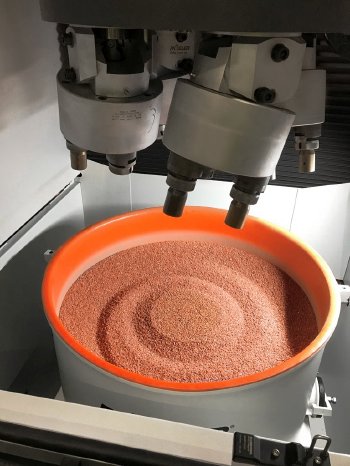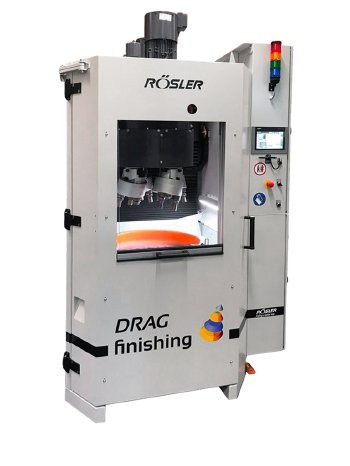With eleven manufacturing locations in Europe, North-America and Asia the voestalpine Rotec is a globally operating company that is specialized in the manufacture, refinement and marketing of precision steel pipes and tubes. Since the company belongs to the internationally operating steel and technology corporation voestalpine, the customers have direct access to comprehensive knowhow ranging from steel liquification to the complete pipes and tubes. The development of innovative products and manufacturing technologies takes place in four divisions. Within the corporate structure the voestalpine Rotec, headquartered in Krieglach, Austria, belongs to the metal forming division. At this location the company manufactures primarily belt tensioning tubes for the automobile industry. The complex manufacturing equipment for making pipe and tube components is also designed and built at the same location. Hannes Winkler, assistant to the plant manager at voestalpine Rotec and responsible for process optimization, explains: „To be able to make our products at internationally competitive costs, our company is utilizing continuous improvement processes.”
Cost reduction by increasing the usable life of tooling
Even before wear became visible, stamping tools like arbors and die plates had to be replaced because of minor fracturing at the edges. Frequently the edges were reworked by hand. But this did seldom extend the usable life of the tools. With around 50 million manufactured components per year tooling supply was a significant cost factor. Therefore, it was not surprising that the process optimization specialist was looking for an automated, repeatable edge radiusing process for prolonging the service life of the tooling.
Cost-efficient dry processing in a drag finisher
Edge radiusing of the tools is an ideal application for the drag finishing technology. This unique mass finishing system allows the precise, targeted surface finishing of high-value, complex work pieces. Exactly defined process parameters guarantee absolutely repeatable finishing results. “From my previous occupation at a supplier of motor sport components I knew that Rösler Oberflächentechnik builds such equipment. That is why I contacted Rösler first. Of course, we also contacted other suppliers of mass finishing equipment and asked them to run processing trials for us”, continues Hannes Winkler. In the end the customer chose the R 4/700 SF system, because Rösler was the only supplier, who could offer a dry finishing process for the tools. Hannes Winkler adds: „The dry solution eliminated the process water cleaning system required with the wet processing solution. This reduced not only the capital expenditure but also resulted in lower operating costs. Of course, the quality and long service life as well as the high availability of the Rösler equipment also played an important role in our decision.”
Automated finishing that is perfectly adapted to different tools
At the heart of the compact, plug-and-play drag finisher is a carousel equipped with four rotary spindles, each spindle allowing the mounting of three work pieces. The carousel and the rotary spindles are outfitted with separate drive motors allowing the setting of totally different rotary speeds for carousel and spindles. The processing bowl is filled with processing media, which in this particular application consists of crushed walnut shells and aluminum oxide. A vibratory motor mounted below the processing bowl ensures the optimum mixing of the processing media. Required bowl changes can be quickly carried out with a forklift truck.
For the actual process the tools to be finished are manually mounted to specially designed work piece fixtures, which in turn are attached to the spindles equipped with quick-connect couplings. To facilitate this operation, the operator moves the spindles to the load/unload station with the touch of a button. This allows quick, ergonomic and simple loading/unloading of the work pieces.
Once the respective processing program, stored in the programmable system controls, has started, the carousel with the spindles is lowered so that the rotating spindles are immersed in the processing media. Carousel and spindles are moving clock- and counterclockwise at the defined rotary speeds. At the midpoint of the processing cycle – depending on the tools to be finished, the total finishing time varies between 15 and 45 minutes – the rotary direction is usually changed. This guarantees an even radiusing of the tool edges on all sides.
Continuously growing work piece spectrum shortens the amortization period
Initially it was planned to use the drag finisher for five frequently used tool types. Hannes Winkler reports: „The new mechanical drag finishing system produced such good results that the usable life of these components could be practically doubled. And in some instances it could even be increased by a factor of ten. Since commissioning the drag finisher about six months ago, we have increased the spectrum of work pieces to be finished mechanically to around 20 different tool types. This helped reduce the amortization period to well below two years. By continuously adding additional work pieces, the amortization time will decline even further”. This positive experience led the voestalpine group of companies to list Rösler as the exclusive supplier for this particular finishing application.
Besides the mechanical edge radiusing of additional tool types, the process optimization specialist is also considering a polishing application. Hannes Winkler concludes: „At the moment we are conducting processing trials. If the results are as we expect, we will purchase a second processing bowl with the required processing media. A key advantage of the Rösler drag finisher is that processing bowls can be easily exchanged allowing us to quickly switch from one application to another”.
www.rosler.com


